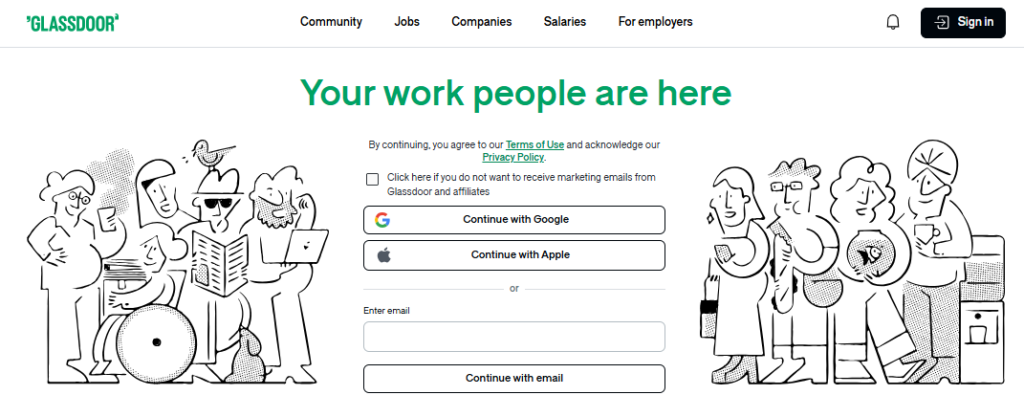For More Free Videos, Subscribe to the Rhodes Brothers YouTube Channel.
“It’s not just politics or money—it’s people’s lives, dreams, and futures that are being squeezed.” — John S. Rhodes, Rhodes Brothers YouTube Channel
What’s Really Going On in the UK?
Have you ever looked around and felt like things just aren’t working the way they used to? That maybe, just maybe, something’s broken—and no one’s fixing it? If you’re in the UK, you’re not alone. From soaring costs to a sense of hopelessness, millions of people are waking up each day wondering if this is just the “new normal.”
But here’s the good news: understanding the reasons behind the UK’s struggles is the first step toward change. Whether you live there, have family there, or just want to understand what’s happening to one of the world’s most influential nations, this article is for you.
We’ll dive into the 10 major reasons why the UK is struggling—backed by stories, stats, expert advice, and tools you can actually use. You’ll walk away with a deeper understanding and actionable ways to navigate or even change your situation.
“The emotions start to marry up with the empirical reality… and now you have something to look at and understand.”— John S. Rhodes
Let’s break it down.
TL;DR
- Crippling cost of living and sky-high housing prices
- Low wages that haven’t kept up with inflation
- Cuts to essential public services, especially healthcare
- High taxes and rising energy bills
- Weather, healthcare delays, and declining morale
- Immigration concerns and rising crime rates
- A deep sense of hopelessness that’s hard to shake
Keep reading for tools, strategies, and real-world tips to understand and navigate these issues.
1. Cost of Living Is Crushing People
What’s Happening?
Prices for food, energy, transport, and basic goods have skyrocketed in the UK. According to the Office for National Statistics, inflation peaked at 11.1% in late 2022, the highest in over 40 years—and it hasn’t dropped fast enough. And yet, wages haven’t kept pace, leaving many families struggling to make ends meet.
Tools & Tips:

- Use budgeting apps like Emma or Money Dashboard to track every penny.
- Switch energy providers using uSwitch to get better deals and avoid overpaying.
- Meal plan smarter using BBC Good Food’s Budget Recipes to cut your grocery bill in half.
Actionable Step: Try a “no-spend” weekend each month. Use the time to cook at home, enjoy free activities, and review spending habits.
2. Wages Are Stuck in the Past
Why It Matters
Despite working just as hard—or harder—than previous generations, many UK workers are earning less in real terms. Real wages have declined by over 3% in recent years, and some industries have stagnated altogether.
Tools & Tips:

- Negotiate smarter: Use Glassdoor to research industry-standard salaries before your next performance review.
- Level up your skills with free or low-cost courses on FutureLearn or Coursera.
- Start a profitable side hustle using platforms like Fiverr or Etsy to turn your skills or hobbies into extra income.
3. Housing Is Out of Control
The Reality
Buying a home is almost out of reach for most young people. The average UK house price is now over £280,000, and rents have increased significantly—leaving many stuck in a cycle of unaffordability.
Tools & Tips:

- Monitor housing trends on Rightmove to track realistic options.
- Explore co-living options or rent-to-buy programs if you’re not ready to buy outright.
- Consider shared ownership schemes as a first step onto the property ladder.
4. Public Services Are Being Cut to the Bone
What’s Missing?
Essential services like healthcare, public transportation, and education have suffered from budget cuts. The NHS backlog alone is over 7 million people, with patients waiting months for care.
Tools & Tips:

- Access telemedicine through services like Push Doctor for quicker, online consultations.
- Seek mental health support from trusted charities like Mind or NHS Every Mind Matters.
5. Taxes Are Climbing—But Services Aren’t
Double Whammy
The UK now has one of the highest tax burdens since the 1950s, yet many feel they’re getting less in return. Whether it’s the state of roads or the NHS waiting list, the disconnect is growing.
Tools & Tips:
- Calculate your tax band and estimate your take-home pay using the Which? Tax Calculator.
- Speak with a tax consultant to explore legal deductions or tax-efficient investing.
- Freelancers and contractors can benefit from personalized tax software like FreeAgent or TaxScouts.
6. The Weather Is Just… Miserable
The Mood
The UK’s infamous grey skies aren’t just a punchline—they affect people’s well-being. With 133 rainy days a year, Seasonal Affective Disorder (SAD) is a real concern.
Tools & Tips:
- Combat SAD using light therapy lamps like the Lumie Vitamin L, especially in the winter months.
- Treat yourself to sunshine by booking low-cost getaways with Skyscanner or checking last-minute holiday deals.
7. Healthcare Is Free… But Delayed
The NHS Dilemma
Yes, UK healthcare is technically free at the point of use. But with months-long waitlists and overwhelmed emergency rooms, many are left waiting for critical care.
“Of all the forms of inequality, injustice in health care is the most shocking and inhuman.”
— Martin Luther King Jr.
Tools & Tips:
- Get faster access through private health plans from providers like Bupa.
- Manage prescriptions with apps like Echo, which offers free delivery and reminders.
8. Crime Is Rising—and People Feel It
The Stats
According to the Home Office, violent crime rose by 20% in 2023. With police stretched thin and courts backlogged, communities feel less secure than ever before.
Tools & Tips:
- Stay informed by joining your local Neighbourhood Watch and receiving real-time alerts.
- Secure your home with affordable tech like the Ring Doorbell or smart locks.
9. Immigration Concerns Are Complex
The Balance
Immigration has long been a strength of the UK economy, but its recent scale has put pressure on housing, schools, and NHS services. The debate is often politicized, but the challenges are real.
Tools & Tips:
- Educate yourself with unbiased resources like the Migration Observatory to understand the data behind the headlines.
- Join community dialogues online or locally to foster understanding and promote solutions that benefit everyone.
10. A Crisis of Hope
The Invisible Struggle
According to a 2024 Ipsos poll, 61% of Brits feel pessimistic about the future. It’s not just about money—it’s about energy, optimism, and the belief that tomorrow can be better than today.
Tools & Tips:
- Start journaling with apps like DayOne, which help track positive moments and goals.
- Volunteer your time via Do-It.org, a UK platform that connects people to community causes.
- Consider professional help, whether through online therapy platforms like BetterHelp or local counseling services.
Actionable Steps and Direct Advice Based on Your Situation
Now that we’ve unpacked the 10 core reasons why the UK is struggling, let’s shift the focus to you. Whether you’re just starting out in life, juggling the demands of family, or preparing for retirement, there are real, practical steps you can take to not only survive but navigate these challenges with more confidence and control.
If you’re a beginner—maybe a student, graduate, or someone early in your career—start by building a strong financial foundation. Use budgeting apps like Emma or Money Dashboard to track your spending and identify where money is going. Even if you’re earning entry-level wages, make it a habit to save a small amount each month—£10 or £20 placed into a high-interest savings account or ISA can grow over time. Invest in your future by learning new skills through platforms like FutureLearn or Coursera, which offer free and low-cost courses in areas like digital marketing, coding, and finance. You might also consider freelancing or launching a side hustle via Fiverr or Upwork, where you can monetize skills like writing, design, tutoring, or admin work. And don’t underestimate the value of building your network—join LinkedIn, attend virtual job fairs, and connect with others in your field.
For millennials (roughly ages 25–40), the squeeze is real. You’re dealing with rising housing costs, stagnant wages, and possibly raising young children. Start by reassessing your career potential. Ask yourself: is my current job scalable? Could I move into a higher-paying industry or role? Use Glassdoor to benchmark your salary, and don’t be afraid to negotiate a raise—especially if you’ve taken on more responsibility. If housing is out of reach, look into shared ownership or rent-to-buy schemes, and consider areas just outside major cities where property is more affordable. Save for a deposit using a Lifetime ISA, which offers a 25% government bonus. And if you have children, explore government-funded childcare schemes and tax credits. You’re not behind—these challenges are systemic, and finding community (both online and locally) can make a big difference in how you navigate them.
For families managing households, the cost of living crisis is particularly hard. Start with a full household financial audit. Review every subscription, bill, and expense—then use tools like uSwitch to find better deals on utilities, and the Which? Tax Calculator to understand if you qualify for any deductions or reliefs. Don’t overlook support like child benefit programs or free school meals; many families qualify without realizing it. Meal planning can also make a huge difference—use BBC Good Food’s budget recipes to cook in batches, reduce waste, and save money. Look for after-school programs or community childcare initiatives that can help alleviate time and financial pressures. And if you’re feeling overwhelmed, reach out to local resources like the Citizen’s Advice Bureau or your local council for guidance.
For those nearing retirement or already retired, the pressures are different but just as real. With a rising tax burden and delayed healthcare services, it’s important to take proactive steps. Begin by checking your State Pension forecast on the GOV.UK website to understand what you’re entitled to. If you’re still working, increase pension contributions—especially if your employer offers matching. Speak with a financial advisor about annuities, ISAs, or investing in low-risk options that protect your savings. If you own a home, consider downsizing or exploring equity release to free up funds. Private health insurance might also be worth considering to reduce NHS wait times for essential care. This is also the time to get your paperwork in order—update your will, assign a Power of Attorney, and ensure your healthcare preferences are documented. Staying active and socially engaged is key to your well-being, so look into local walking groups, clubs, or volunteer programs to keep your mind and body sharp.
Across all demographics, one universal truth holds: you don’t have to wait for the government or the economy to fix itself before taking action. The UK may be struggling on a national level, but your personal resilience, adaptability, and resourcefulness can make a huge difference in how you experience this moment. Whether it’s budgeting smarter, learning a new skill, asking for help, or simply connecting with others—the smallest step forward is still a step in the right direction.
Common Mistakes to Avoid (And What to Do Instead)
When faced with national decline, economic pressure, or personal hardship, it’s easy to fall into certain traps. But these common mistakes don’t just hold you back—they can actively deepen your struggles. Let’s unpack them more thoughtfully and offer smarter alternatives.
1. Ignoring the Issue
The Mistake:
Many people cope by tuning out. They stop opening bills, avoid the news, or convince themselves that things will “work themselves out eventually.” But avoidance doesn’t offer protection—it creates vulnerability. Debt snowballs. Opportunities pass by. Stress silently builds.
Why It Happens:
It’s rooted in overwhelm. When every part of life feels unstable—money, work, health—it’s natural to shut down. But inaction leads to slow erosion, not relief.
What to Do Instead:
Face one area at a time. Start small: track your spending for a week, or check your credit score. You don’t have to fix everything in a day—but progress begins with visibility. Facing the issue head-on allows you to take back control, even if it’s just in one corner of your life.
2. Blaming Just One Thing
The Mistake:
It’s tempting to blame one source—like the government, immigration, or inflation—for all of the UK’s problems. But the truth is more complicated. The country’s struggles stem from a tangled web of economic policy, global events, political mismanagement, cultural shifts, and even climate factors.
Why It Happens:
Our brains crave simple explanations. It feels good to point a finger because it gives us a clear “enemy.” But oversimplification breeds frustration—and blinds us to real solutions.
What to Do Instead:
Zoom out. Educate yourself through balanced sources like the Institute for Fiscal Studies, Migration Observatory, or even long-form YouTube explainers. Recognising the complexity of the situation puts you in a better position to make informed decisions—and to vote, advocate, and act with clarity.
3. Not Asking for Help
The Mistake:
There’s a common belief in the UK that you should “just get on with it.” Many people suffer in silence—struggling with debt, mental health, or unemployment—because they think asking for help is a sign of failure or weakness.
Why It Happens:
Shame and pride play a big role. Plus, many people simply don’t know where to turn, or they assume support is only for “people worse off.”
What to Do Instead:
Understand that support services exist because life is hard sometimes. Reach out to organisations like Citizens Advice, Turn2Us, or StepChange for debt advice, benefit checks, housing help, or legal support. These services are confidential, free, and designed to catch you before you fall too far.
Bonus: Believing You’re Alone
The Mistake:
Thinking you’re the only one struggling. Social media makes it look like everyone else is thriving—but that’s a highlight reel, not real life. Loneliness and isolation feed hopelessness.
What to Do Instead:
Start talking. Whether it’s with a friend, a support group, or an anonymous forum, sharing your experience breaks the illusion of isolation. Millions are facing the same pressures—and connection often leads to solutions you wouldn’t find on your own.
Frequently Asked Questions
Why is the UK economy struggling so much?
A mix of inflation, Brexit aftermath, global instability, and weak wage growth.
Is it still worth living in the UK?
Yes—but it depends on your financial and mental resilience. There are still opportunities, especially in tech, healthcare, and education.
How can I earn more in the UK?
Upskilling, freelancing, and side hustles are great ways to increase income.
Is healthcare really free in the UK?
Yes, but be prepared for long waiting times unless you go private.
What’s the housing solution?
Look into shared ownership, rent-to-buy, or co-living spaces.
Are taxes too high?
The UK has one of the highest tax burdens in the OECD. Use tools to reduce your tax liability legally.
Is crime really that bad now?
It’s worse than it was but still lower than many other countries.
What’s causing the hopelessness?
Lack of upward mobility, rising costs, and poor public services.
How do I protect my mental health?
Seek support, build routines, and connect with purpose-driven activities.
Is there hope for the UK’s future?
Absolutely—but it’ll take both systemic policy changes and grassroots resilience.
Let’s Rebuild Hope, Together
Everyone’s struggling in their own way—but now you know the reasons why, and more importantly, you have tools to push forward.
Whether it’s budgeting smarter, investing in yourself, or simply reaching out for support—you can take the first step toward change.
So, don’t wait.
Start today. Take action. Be the change.
Thank you for reading! If this resonated with you, make sure to Subscribe to the Rhodes Brothers YouTube Channel for powerful insights, financial tips, and real talk that helps you master your wealth—and yourself.
Resource List
Books
Courses & Podcasts
- The Rest is Politics (Podcast)
- Economics for Everyone on Coursera
- Understanding the UK Economy on FutureLearn
Tools
- Emma – Budgeting
- uSwitch – Energy comparison
- Rightmove – Housing search
- Push Doctor – Private healthcare
- DayOne – Journaling & mental health
- Do-It.org – Volunteering platform
- Fiverr – Freelance income
- Neighbourhood Watch – Crime alerts





